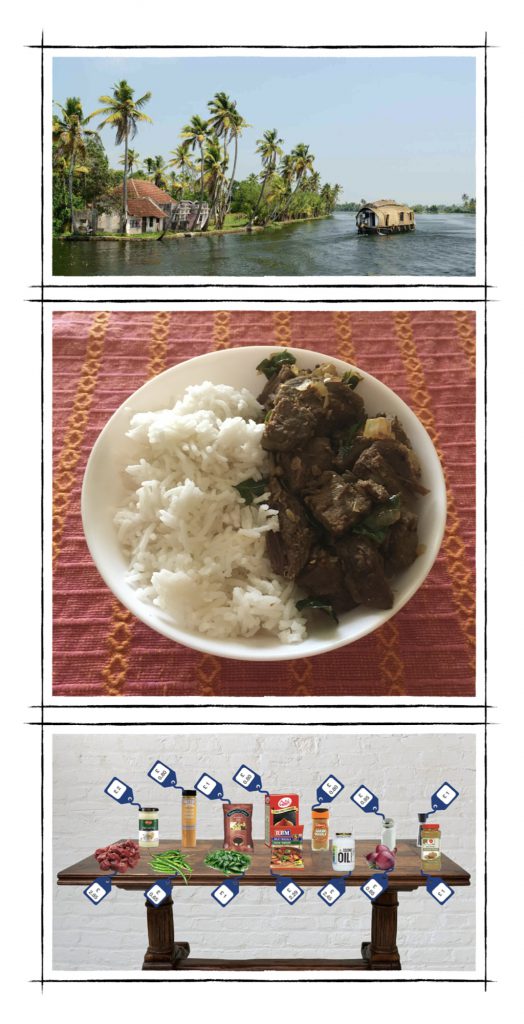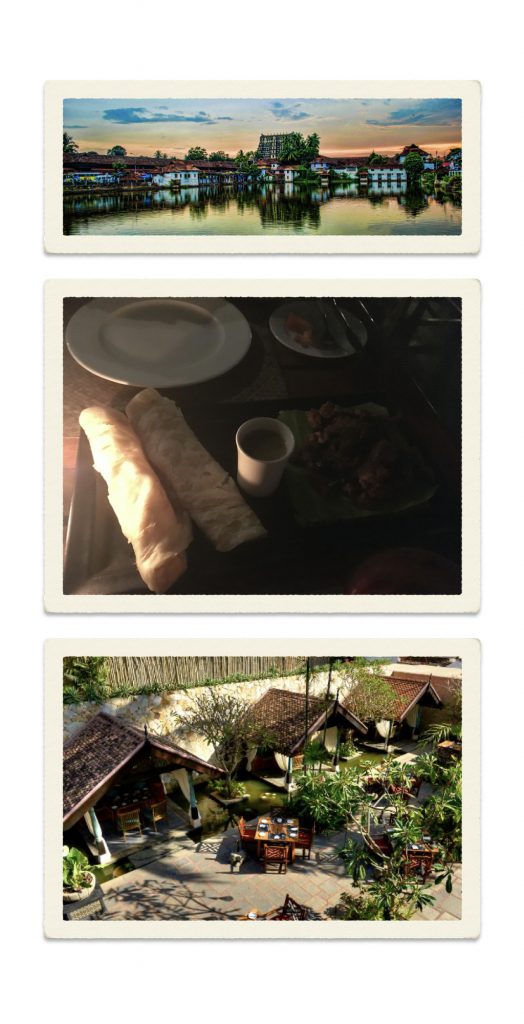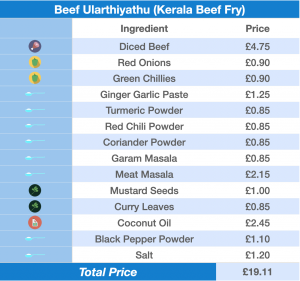
What’s In A Name
Country of Origin – India
State – Kerala
The South Indian state of Kerala seems to be one of the few states in India that is impervious to the rules of the regime operating outside its borders. The state sells its beef in the same quantity and velocity as the Arab countries sell their oil.
Consumed by the gallons, the beef fry has become a stuff of legends and a true Kerala treasure. You’ll probably find it hard to go 500 m without finding a stall/street food vendor doling out beef fry to its eager customers in a speed that can match The Flash.
You know me – talk turns to legend and I just have to check it out! around the world, albeit with a higher degree of sophistication.

Our Connection
എവിടെയാണ് (Where) – Villa Maya Heritage Restaurant – Thiruvananthapuram, Kerala, India
എപ്പോൾ (When) – November, 2018
The reason for my visit to Trivandrum (a.k.a. Thiru-no one can ever spell it right) was to celebrate my grandmother’s 80th birthday. It also gave me a chance to sample some of the famous authentic Kerala cuisine.
And what’s more authentic than Beef Ularthiyathu – the traditional Beef Fry? The answer to that is nothing! When those malabar parathas arrived rolled up next to a mountain of beef fry, I knew I had made it!
Speaking of ‘making it’, I just learnt how to make these myself. That should save me (and you!) a few rupees!
Beef Ularthiyathu (Beef Fry)
Description
"So, Beef Fry but it's not really fried but roasted? So it's actually Roast Beef but you call it Beef Fry? Man, you seem to have a lot of beef for someone who's vegetarian!"
Ingredients
Instructions
-
Season the diced beef cubes with the meat masala4, salt, and pepper
-
Place the seasoned beef cubes into a pressure cooker6
-
Add water to the pressure cooker until it just about covers the beef cubes
-
Close the pressure cooker and let the beef cook for 3 whistles on medium-high heat (approx. 45 mins - 1 hour)2
-
While the beef cubes cook inside the pressure cooker, dice the red onions and slit the green chillies
-
In a separate pan, add the coconut oil3 and heat it until it melts
-
Once the coconut oil becomes warm, add the mustard seeds and curry leaves and let them rest in the pan until the seeds start to burst and sputter
-
Add the diced onions, green chillies, and ginger-garlic paste to the pan and sauté on low-medium heat until the onions turn translucent
-
Season the onion mixture with turmeric powder, red chilli powder, coriander powder, garam masala, and a pinch of salt. Sauté until the raw smell of the spices subside
-
Once the beef cubes are cooked, carefully remove the lid of the pressure cooker. Drain any excess water from the cooker, while retaining the minimal amount (2-3 tbsp)
-
Add the spiced onion mixture to the pressure cooker and continue to cook the beef on medium-high heat until the water evaporates completely
-
Once the cooker is dry, take it off the heat and let the beef continue to simmer in the cooker for another 5 minutes
-
To Serve (per serving): A heaped spoonful of dry beef fry, served with either Malabar Parottas or a more than moderate serving of short-grain white rice
Note
1. If the beef is kept in the fridge overnight, leave it out to thaw roughly 30 mins - 1 hour before you start cooking. This will allow to get to room temperature and cook evenly.
2. The traditional recipe calls for the beef to be cooked for half a day or sometimes even an entire day. This ensures that the meat is extremely tender and falls apart as you bite into it. You can try this if you have time to spare!
3. This recipe might seem slightly expensive, so substitute coconut oil for regular oil to lower the costs.
4. If you cannot find meat masala in any of your local grocery stores, then try an Indian store. If there are none around you, substitute garam masala for meat masala with similar measurements.
5. You can add coconut pieces in the end to truly give it a Keralite touch. Sauté coconut pieces with curry leaves and add it in the end of cooking.
6. Using a pressure cooker/slow cooker is a must to ensure that the beef is cooked well enough that the pieces start falling apart with a fork while eating.
7. The prices of the ingredients (table below) are only rough estimates and are subject to change!
8. As certain ingredients are common household items - salt, pepper, oil - you may not be required to purchase them, and so the cost of preparing this dish is lower.





